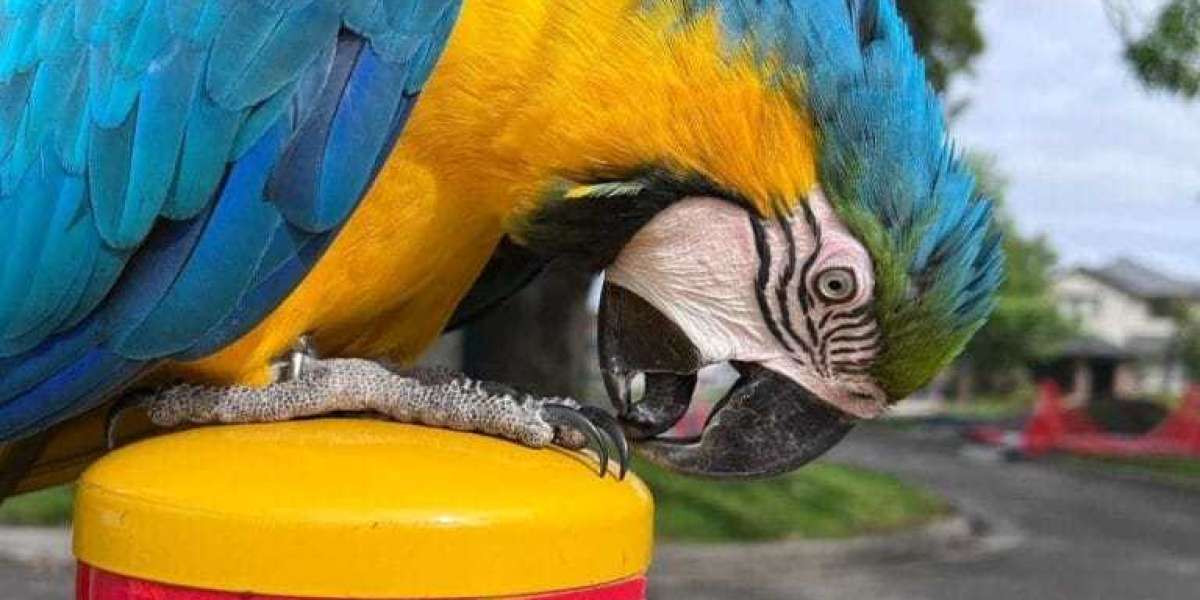
The Catalina Macaw is a stunning hybrid parrot renowned for its vivid colors, striking appearance, and playful personality. This bird is a cross between two macaw species: the Blue-and-Gold Macaw (Ara ararauna) and the Scarlet Macaw (Ara macao). With its beauty and charisma, the Catalina Macaw has become a favorite among avian enthusiasts. When considering adding one of these magnificent birds to your family, one critical factor to keep in mind is their lifespan and the care required to ensure they thrive.
How Long Do Catalina Macaws Live?
The average lifespan of a Catalina Macaw is between 50 to 60 years, although, with exceptional care, some individuals may live even longer. Like other macaws, they are long-lived birds, making them a lifetime commitment for prospective owners. It's important to consider not only their physical needs but also their mental and emotional well-being throughout this extended lifespan.
In comparison, wild macaws often face environmental threats that can limit their lifespans, including habitat loss, predators, and competition for resources. However, in captivity, with proper care, a Catalina Macaw can live a full and healthy life, reaching its potential age.
Factors Affecting the Lifespan of a Catalina Macaw
To ensure that a Catalina Macaw enjoys its maximum lifespan, owners must meet several care requirements. These include proper diet, regular veterinary check-ups, social interaction, and mental stimulation. Here are some key factors that influence their longevity:
1. Diet
Diet plays a fundamental role in the health and longevity of Catalina Macaws. In the wild, macaws feed on a diverse diet of fruits, nuts, seeds, and vegetation. In captivity, their diet should replicate this variety to provide balanced nutrition.
A healthy diet for a Catalina Macaw should include:
- High-quality commercial pellet food as a base.
- Fresh fruits and vegetables (such as apples, carrots, leafy greens, and berries).
- Small quantities of nuts and seeds as a treat (unsalted and unroasted).
- Occasional healthy snacks such as cooked grains or legumes.
Avoid foods high in fat, sugar, or salt, as well as toxic foods like avocado, chocolate, and caffeine.
2. Exercise and Enrichment
Catalina Macaws are intelligent and buymacaw active birds that require both physical and mental stimulation. A lack of exercise and boredom can lead to obesity, behavioral problems, and a shortened lifespan. These macaws need ample space to stretch their wings and toys to chew on and problem-solve. A large cage or aviary, daily out-of-cage time, and engaging activities help keep these birds healthy and content.
3. Social Interaction
As highly social creatures, Catalina Macaws thrive on interaction with their human caregivers or other birds. Loneliness and neglect can lead to stress, depression, and even physical illness. Spending time with your macaw—talking to them, teaching them tricks, or simply offering companionship—can significantly enhance their quality of life and longevity.
4. Medical Care
Routine veterinary care is essential for keeping a Catalina Macaw healthy. Most avian veterinarians recommend annual check-ups to catch and treat potential health issues early. Parrot owners should also monitor their bird for signs of illness, such as changes in appetite, feather condition, or behavior. Common health issues in macaws include feather plucking, respiratory infections, and psittacine beak and feather disease (PBFD).
5. Safe and Stimulating Environment
A safe and clean living environment is critical to the health of your Catalina Macaw. Their cage should be spacious, clean, and free of hazards. Make sure your home environment is also safe—keep hazardous items such as electrical cords, toxic houseplants, and toxic fumes (e.g., from non-stick cookware) far away from your macaw.
Commitment to a Long-Term Companion
With their vibrant plumage, intelligence, and strong personalities, Catalina Macaws are captivating pets. However, their long lifespan means they are a responsibility not to be taken lightly. Prospective and current owners must be prepared to commit decades to providing proper care and companionship.
In addition, it’s wise for macaw owners to plan ahead, as their bird’s lifespan may exceed their own. This could mean designating a trusted person to care for the bird in the event of unforeseen circumstances.
The Catalina Macaw’s long lifespan is both a joy and a responsibility. To ensure a healthy, happy life for this magnificent bird, you’ll need to provide proper nutrition, mental and social stimulation, veterinary care, and a safe environment. When these needs are met, a Catalina Macaw can thrive for many decades, becoming a cherished companion for generations. Owning a Catalina Macaw is a journey filled with love, learning, and discovery, and for those willing to make the commitment, it’s a deeply rewarding experience.








